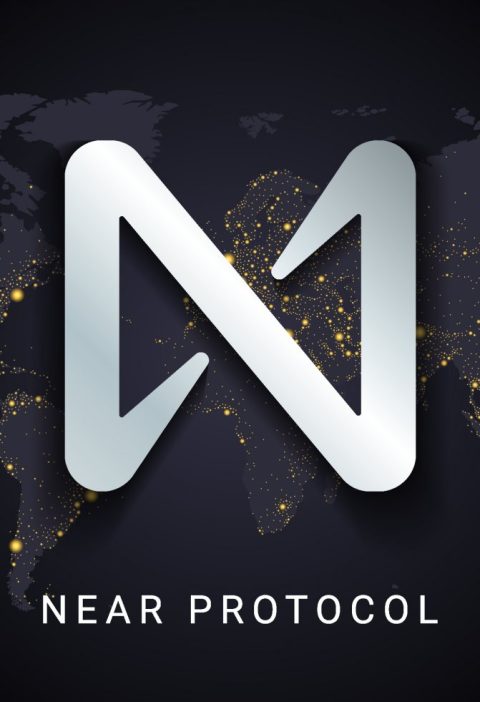The cryptocurrency space continues to evolve, and one of the most exciting developments is the integration of Bitcoin with decentralized finance (DeFi). DeFi has opened up new possibilities for financial transactions without traditional intermediaries, while Bitcoin remains a popular digital asset. Understanding how to integrate a Bitcoin wallet with DeFi platforms is essential for those looking to expand their crypto horizons.
Understanding the Basics
Understanding the basics is essential for building a solid foundation in any subject, enabling deeper exploration and informed decision-making.
What is a Bitcoin Wallet?
A Bitcoin wallet is a tool that stores your Bitcoin and allows you to send, receive, and manage your cryptocurrency. It comes in various forms, including software applications, hardware devices, and browser extensions, all serving to keep your private keys secure. One example of a user-friendly and secure option is Bitamp Bitcoin Wallet, which is a non-custodial wallet that allows users to manage their Bitcoin directly from their browser.
What is DeFi (Decentralized Finance)?
DeFi refers to decentralized financial systems that operate on blockchain networks, offering services like lending, borrowing, and trading without relying on banks or traditional financial institutions. These platforms use smart contracts to automate processes, making transactions more transparent and efficient.
Why Integrate Bitcoin with DeFi?
Integrating Bitcoin with DeFi allows users to access decentralized financial products while maintaining their exposure to Bitcoin’s value. By converting Bitcoin into tokenized forms compatible with DeFi, users can lend, borrow, or provide liquidity, all while benefiting from Bitcoin’s price movements.
Types of Bitcoin Wallets Compatible with DeFi
Types of Bitcoin wallets compatible with DeFi include software wallets, hardware wallets, and web-based wallets, each offering varying levels of security and accessibility for engaging with decentralized finance applications.
Software Wallets
Software wallets are digital applications that store your Bitcoin on your device. They are convenient and easy to use, making them popular among new users looking to integrate with DeFi platforms. These wallets typically allow integration with other decentralized apps (dApps).
Hardware Wallets
Hardware wallets offer greater security by storing your Bitcoin offline. While slightly less convenient for quick transactions, they are ideal for long-term holders who prioritize security when interacting with DeFi. When needed, they can still be connected to DeFi platforms for transactions.
Browser Extensions
Browser extension wallets are lightweight and work seamlessly with DeFi applications. They act as a bridge between your browser and the blockchain, making it easier to interact with decentralized platforms directly from your web browser.
Preparing Your Bitcoin Wallet for DeFi Integration
It involves ensuring it’s compatible with decentralized applications, securing your private keys, and being aware of the necessary protocols for seamless transactions within the DeFi ecosystem.
Ensuring Wallet Security
Before diving into DeFi, make sure your wallet is secure. Activate two-factor authentication (2FA) and keep your private keys offline when not in use. This helps protect against hacking attempts.
Backing Up Your Wallet
Always back up your wallet by securing your recovery phrase. This ensures that you can recover your funds if your wallet gets lost or compromised.
Verifying Wallet Compatibility
Not all wallets support DeFi integration. Make sure your Bitcoin wallet is compatible with the DeFi platform you want to use. Some DeFi platforms may require tokenized Bitcoin, such as Wrapped Bitcoin (WBTC).
Bridging Bitcoin to Ethereum: The Gateway to DeFi
Bridging Bitcoin to Ethereum creates a vital pathway for users to access DeFi services, enabling them to leverage Bitcoin’s value while participating in the diverse range of decentralized finance applications available on the Ethereum network.
Understanding Wrapped Bitcoin (WBTC)
Bitcoin operates on its blockchain, while most DeFi platforms are built on Ethereum. To bridge this gap, Wrapped Bitcoin (WBTC) is used. WBTC is an Ethereum-based token that represents Bitcoin and can be used in DeFi platforms that don’t support native Bitcoin.
Other Bitcoin Tokenization Options
Beyond WBTC, there are other tokenization methods, such as renBTC and tBTC, which allow Bitcoin to be integrated into DeFi ecosystems. These options provide more flexibility for users who want to explore different DeFi products.
Step-by-Step Guide: Integrating Your Bitcoin Wallet with DeFi
This step-by-step guide provides a comprehensive approach to integrating your Bitcoin wallet with DeFi, ensuring you can seamlessly participate in decentralized finance while maintaining security and control over your assets.
Choosing a DeFi Platform
Start by selecting a DeFi platform that fits your needs. Whether you’re interested in lending, borrowing, or providing liquidity, make sure the platform supports tokenized Bitcoin.
Connecting Your Wallet to the DeFi Platform
Once you’ve chosen a platform, connect your Bitcoin wallet. Ensure that your wallet supports the platform’s integration, and follow the steps to authorize your wallet to interact with the DeFi application.
Converting BTC to WBTC or Other Tokenized Forms
To use your Bitcoin in DeFi, you’ll need to convert it into a tokenized form, such as WBTC. You can do this directly through the DeFi platform or a third-party service. After conversion, your WBTC can be used within the DeFi ecosystem for various financial activities.
Exploring DeFi Options with Your Integrated Bitcoin
Exploring DeFi options with your integrated Bitcoin allows you to utilize your assets in various financial services, such as lending, yield farming, and trading, expanding your investment opportunities within the decentralized finance landscape.
Lending and Borrowing
One of the main uses for tokenized Bitcoin in DeFi is lending and borrowing. You can lend your Bitcoin to earn interest or borrow assets by using your Bitcoin as collateral. This opens up new ways to grow your holdings or access liquidity without selling your Bitcoin.
Yield Farming
Yield farming involves providing liquidity to DeFi platforms in exchange for rewards. By depositing your tokenized Bitcoin into liquidity pools, you can earn returns in the form of additional tokens or interest, though it comes with associated risks.
Liquidity Provision
Liquidity providers help maintain the flow of assets in DeFi markets. By adding tokenized Bitcoin to liquidity pools, you facilitate trades on decentralized exchanges, earning fees in return for your contribution.
Security Considerations When Using Bitcoin in DeFi
Security considerations when using Bitcoin in DeFi include safeguarding private keys, being wary of phishing attacks, and ensuring that the platforms and smart contracts you interact with are reputable and audited.
Smart Contract Risks
DeFi platforms rely on smart contracts, which are automated programs that execute transactions. While convenient, smart contracts can have vulnerabilities. Make sure the DeFi platform you use has been thoroughly audited to minimize the risk of bugs or exploits.
Impermanent Loss
When providing liquidity, you might face impermanent loss if the value of Bitcoin changes significantly relative to the other assets in the liquidity pool. It’s important to understand this concept before committing your tokenized Bitcoin to DeFi pools.
Phishing and Scam Awareness
Always be cautious of phishing attempts. DeFi platforms are targets for hackers, so double-check URLs, avoid clicking suspicious links, and never share your private keys with anyone. Ensuring that your Bitcoin wallet remains secure is paramount.
Managing Gas Fees and Transaction Costs
Interacting with DeFi platforms often involves transaction fees, also known as gas fees. These can fluctuate depending on network congestion, especially on Ethereum. Be mindful of these fees when moving Bitcoin in and out of DeFi platforms.
Keeping Track of Your DeFi Activities
Keeping track of your DeFi activities is essential for managing your investments effectively, allowing you to monitor performance, assess risks, and stay informed about the transactions and protocols you engage with.
Portfolio Management Tools
Managing your DeFi activities can become complex over time. There are various tools available that help track your DeFi investments, including the performance of your tokenized Bitcoin and overall portfolio health.
Tax Implications
DeFi activities, such as lending and liquidity provision, can have tax implications. It’s important to keep accurate records of your transactions and consult with a tax professional to understand your obligations, particularly in the US.
Troubleshooting Common Issues
DeFi integration can come with challenges, such as failed transactions or compatibility problems. Make sure you’re familiar with the platform’s support channels and community forums where you can find solutions to common issues.
Conclusion: Embracing the Future of Bitcoin in DeFi
Integrating Bitcoin with DeFi opens up a world of financial possibilities that traditional systems simply cannot offer. Whether you’re looking to earn interest, provide liquidity, or explore new financial products, combining Bitcoin with decentralized finance platforms is a step toward a more open and accessible financial future. With the right tools and security precautions in place, your Bitcoin wallet can be the key to unlocking these opportunities, ensuring that you’re ready for what lies ahead in the evolving crypto landscape.






